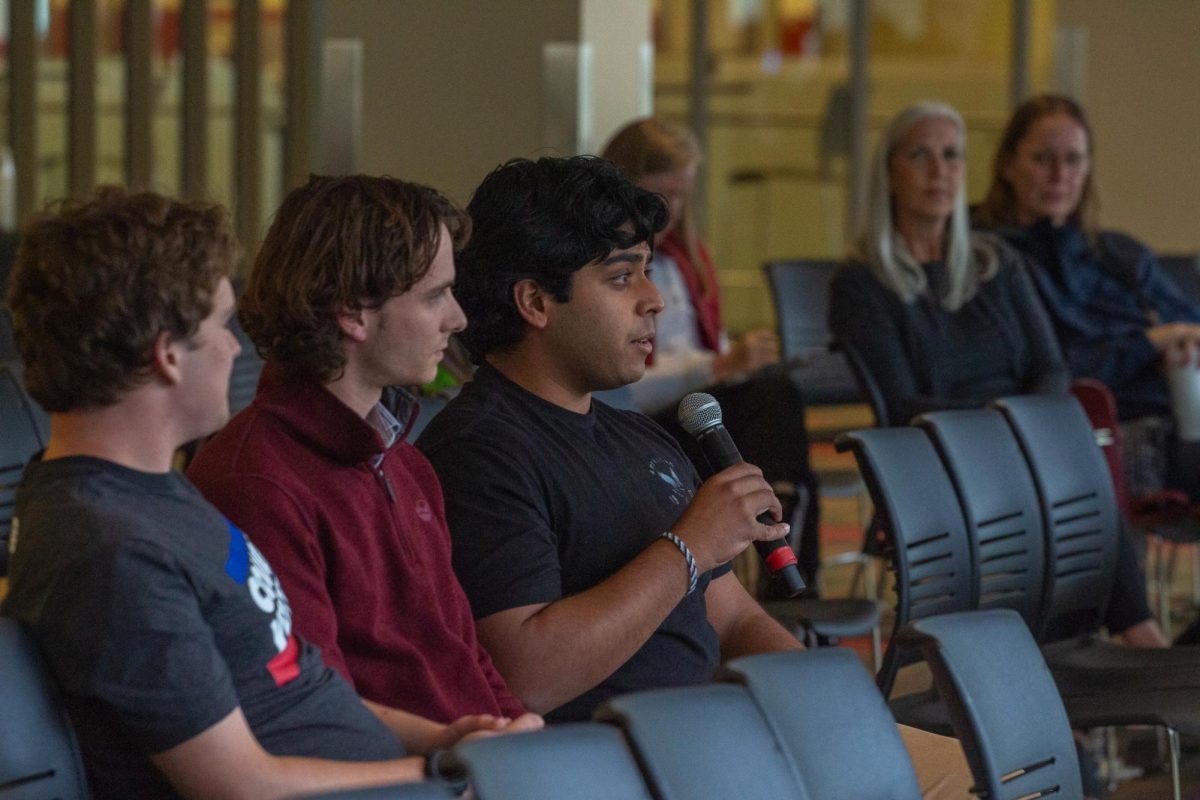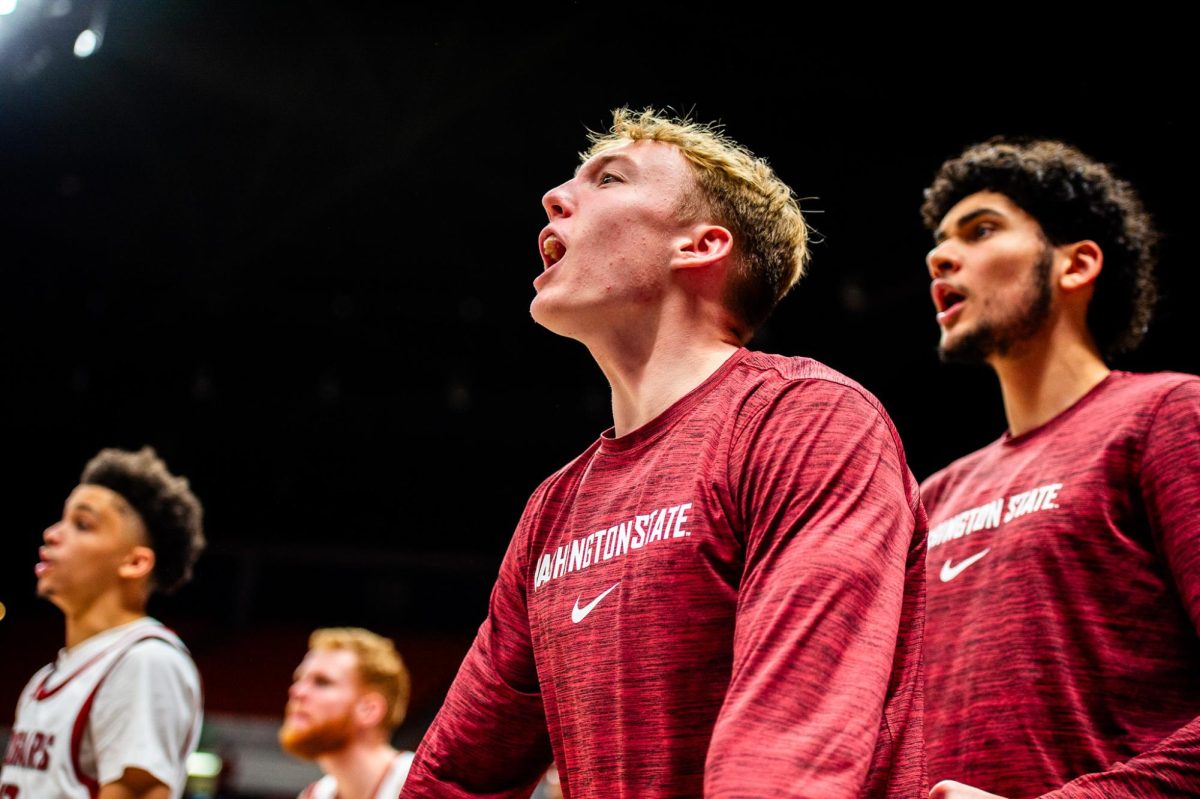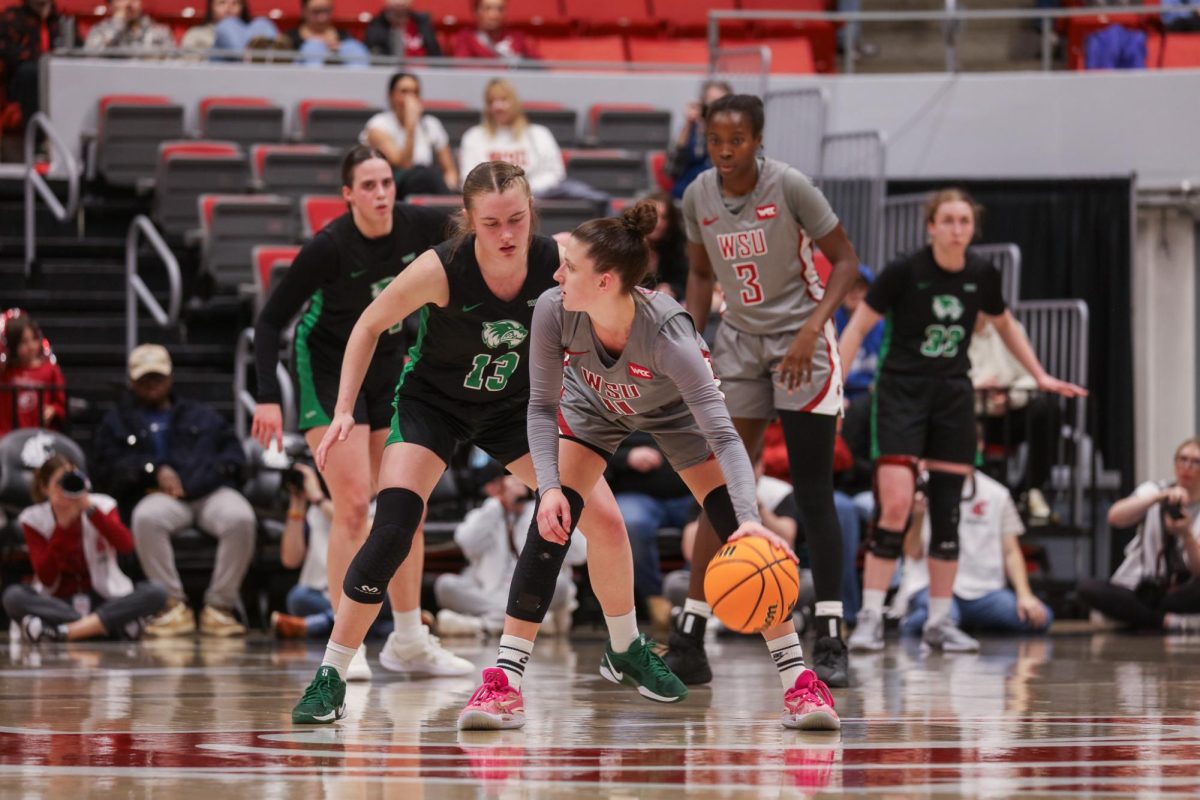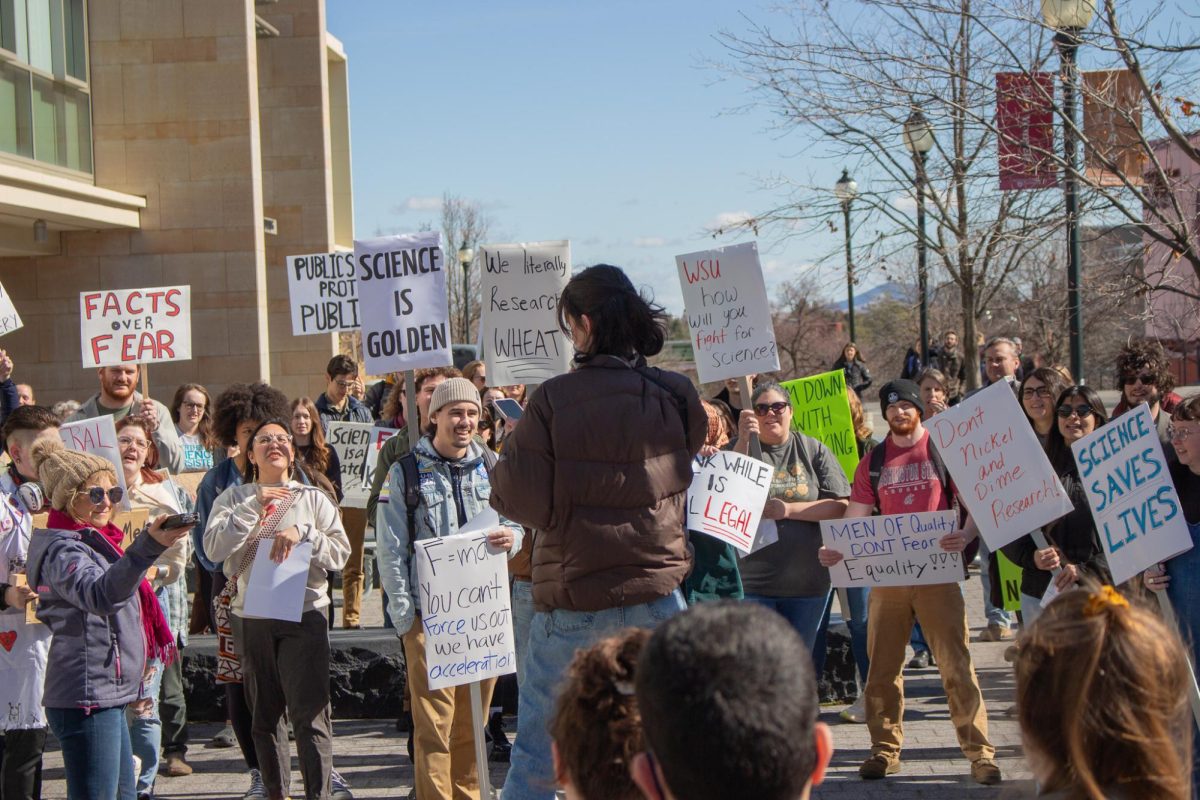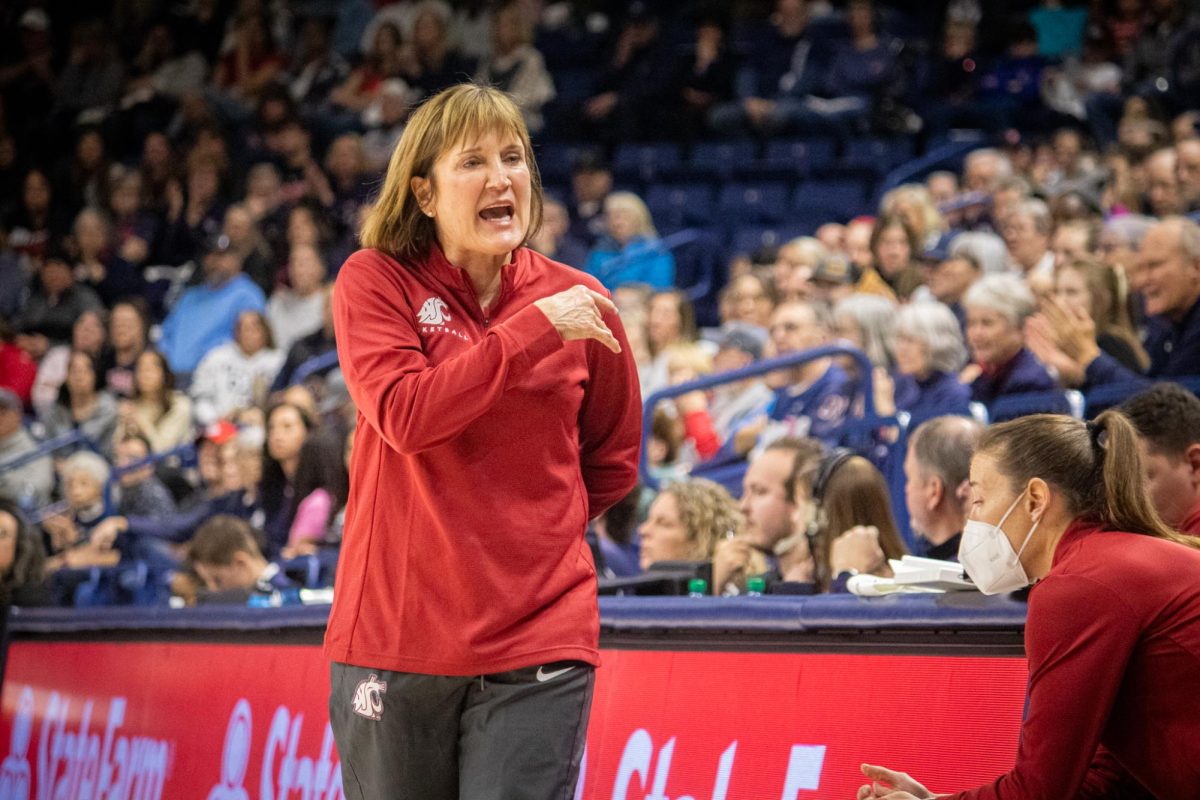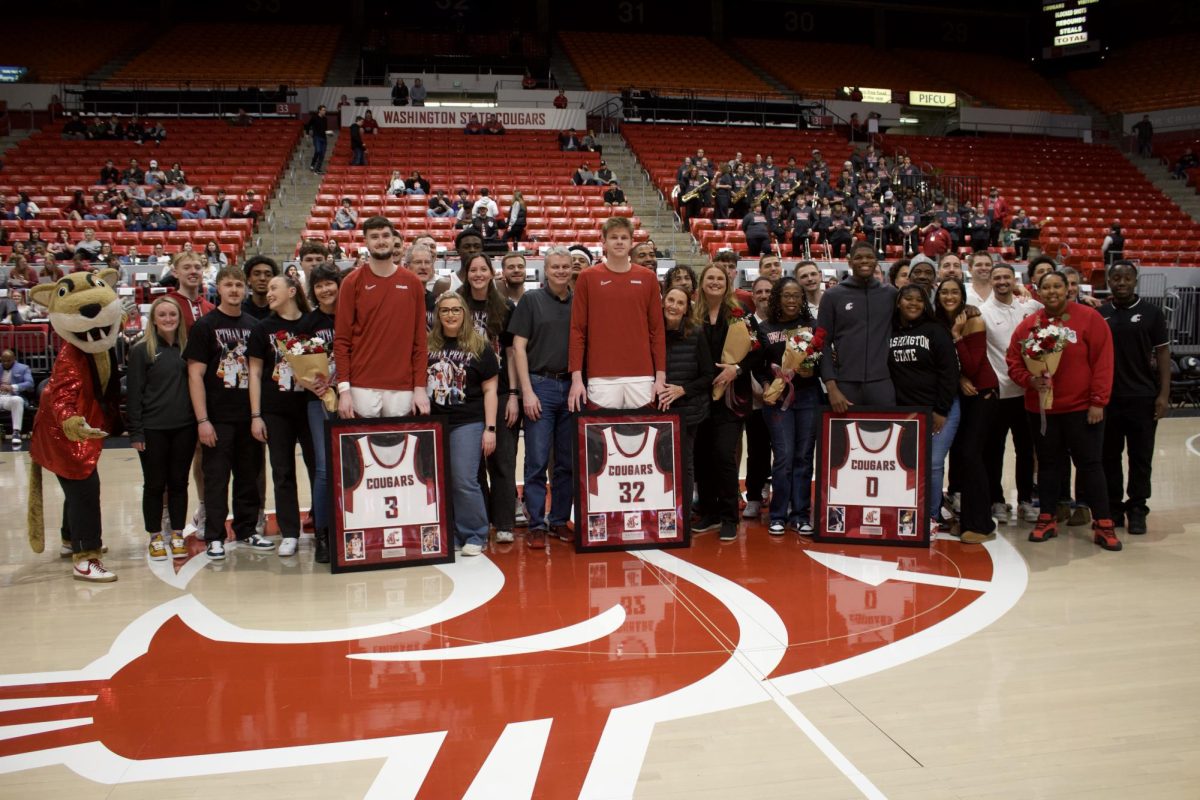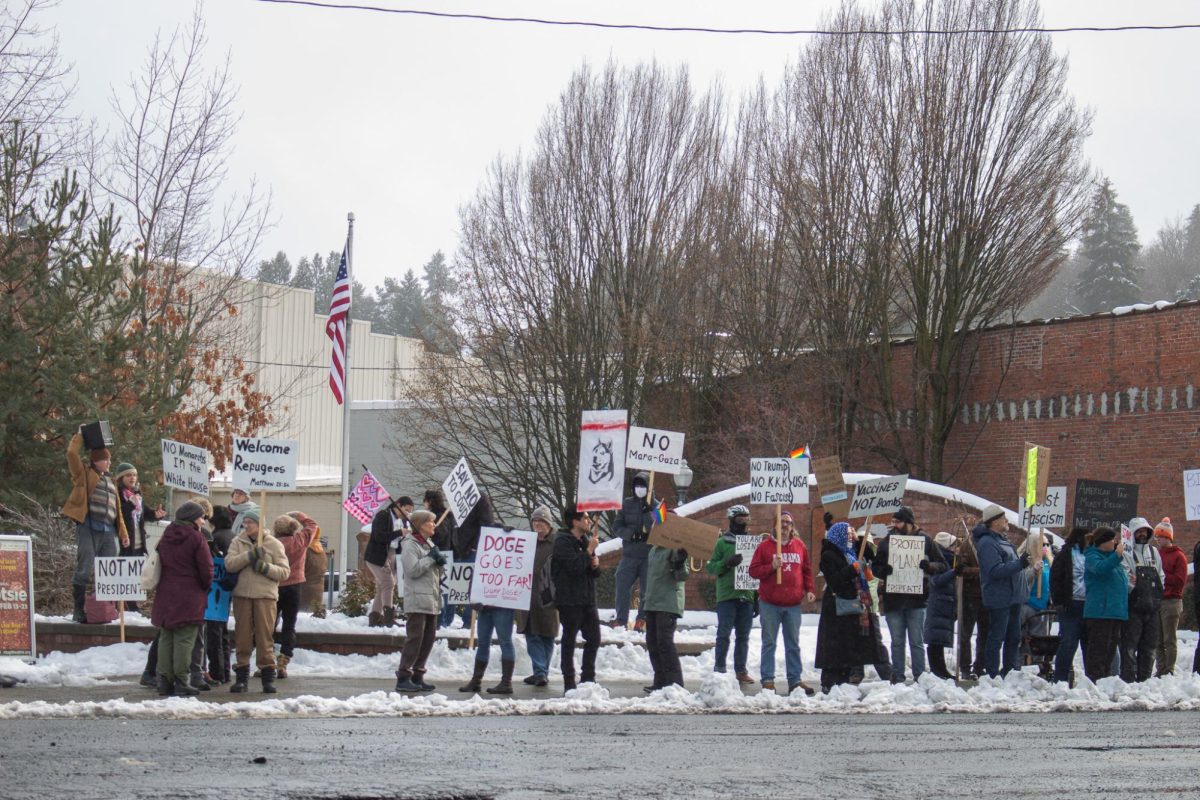The Presidential Search Advisory Committee held open community listening sessions at the WSU Pullman campus Tuesday and Wednesday.
This week’s sessions — open to faculty, staff, students, the wider community and campus leaders — conclude a string of public feedback hearings across all WSU campuses held throughout September. This information will assist PSAC in the further development of an ideal candidate profile, said search committee chair Janette Ramos.
The PSAC, consisting of 25 members, holds representation from all WSU campus, including administrative leadership, student government officials and WSU Regents. Several members were present at the meeting along with representatives from WSU Regents.
Collin Bannister, ASWSU legislative director, said enrollment, funding and connecting student government are all important tasks the future president must handle.
“It’s hard because there really is no magic wand, but obviously one of the biggest issues that I think I see is the decrease in student enrollment. Because that affects funding, that affects student government funding, [and] everything around the university,” Bannister said.
Bannister said these factors impact student involvement and the wider campus culture.
“There’s not any single one issue of why enrollment has been decreasing over the last years,” he said. “But there’s definitely things that I think the president could address, look into, such as how we can make the university more suitable for students that are graduating high school post-COVID.”
Tathagata Pal, doctoral canidate and GPSA legislative affairs vice president, said a president also must understand the importance of WSU’s position as an R1 research institution
“I would like to see the future president to invest his attention towards getting more funding for research and supporting graduate and professional students,” Pal said.
Additionally, Pal said the president must be aware of students’ basic needs, with an emphasis on food and housing insecurity.
Tucker Senter, ASWSU deputy of legislative affairs, said the future president must embody “WSU resilience,” particularly in the wake of factors such as the pandemic, lower student enrollment and Pac-12 realignment.
“We need somebody that really wants to build a great program, that wants to build WSU into something really great and has the resiliency, has the determination to really put in a plan and make it happen,” Senter said.
In terms of candidate qualifications, the students agreed that a background in education was important, but an understanding of business will be of benefit to the university.
“Universities are, at it’s most basic structure, a business,” ASWSU deputy of legislative affairs Bhargav Iyer said. “Students are investments that never fail. What is your investment going to be and how are you going to support students across our campus?”
Ramos, who assisted in facilitating the conversation, said student feedback was very important during this ongoing hiring process.
“You’re our future leaders,” Ramos said. “What you’ve shared with us today was substantive and meaningful. We’ll be sure to capture the spirit of that, the spirit of Cougs.”
Having heard from all campuses, Ramos said the committee will be convening in the next few weeks to further develop PSAC’s ideal candidate profile based off the feedback received.


